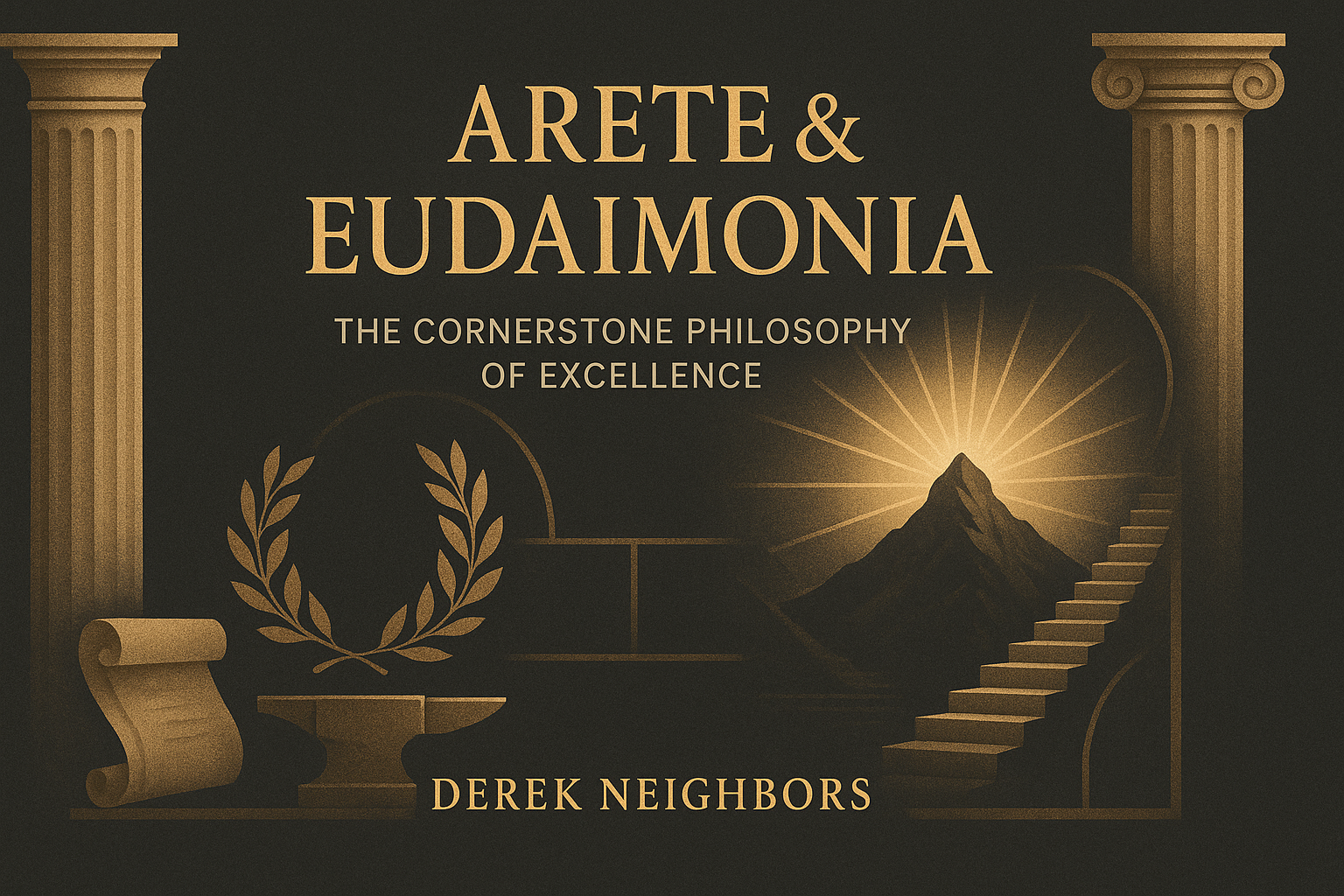You're Not Getting Ready. You're Hiding.
Preparation is the most sophisticated form of procrastination. It feels productive. It looks responsible. And it keeps you exactly where you are.

Browse all articles in the Philosophy category. Here you'll find insights, tips, and exploration of topics related to philosophy.
Explore diverse perspectives on philosophy through practical advice, thought-provoking analysis, and real-world examples.
Preparation is the most sophisticated form of procrastination. It feels productive. It looks responsible. And it keeps you exactly where you are.

You tell yourself the backup plan is smart, responsible, prudent. The Stoics knew better. Prohairesis, moral choice, is singular by nature. Every escape route you build is a promise to yourself that when things get hard enough, you'll quit.

Andy Weir posted chapters of The Martian to his blog for 10 years. 3,000 readers. No validation. No proof it mattered. Then the breakthrough. The separator isn't talent or work ethic, it's tolerance for uncertainty.
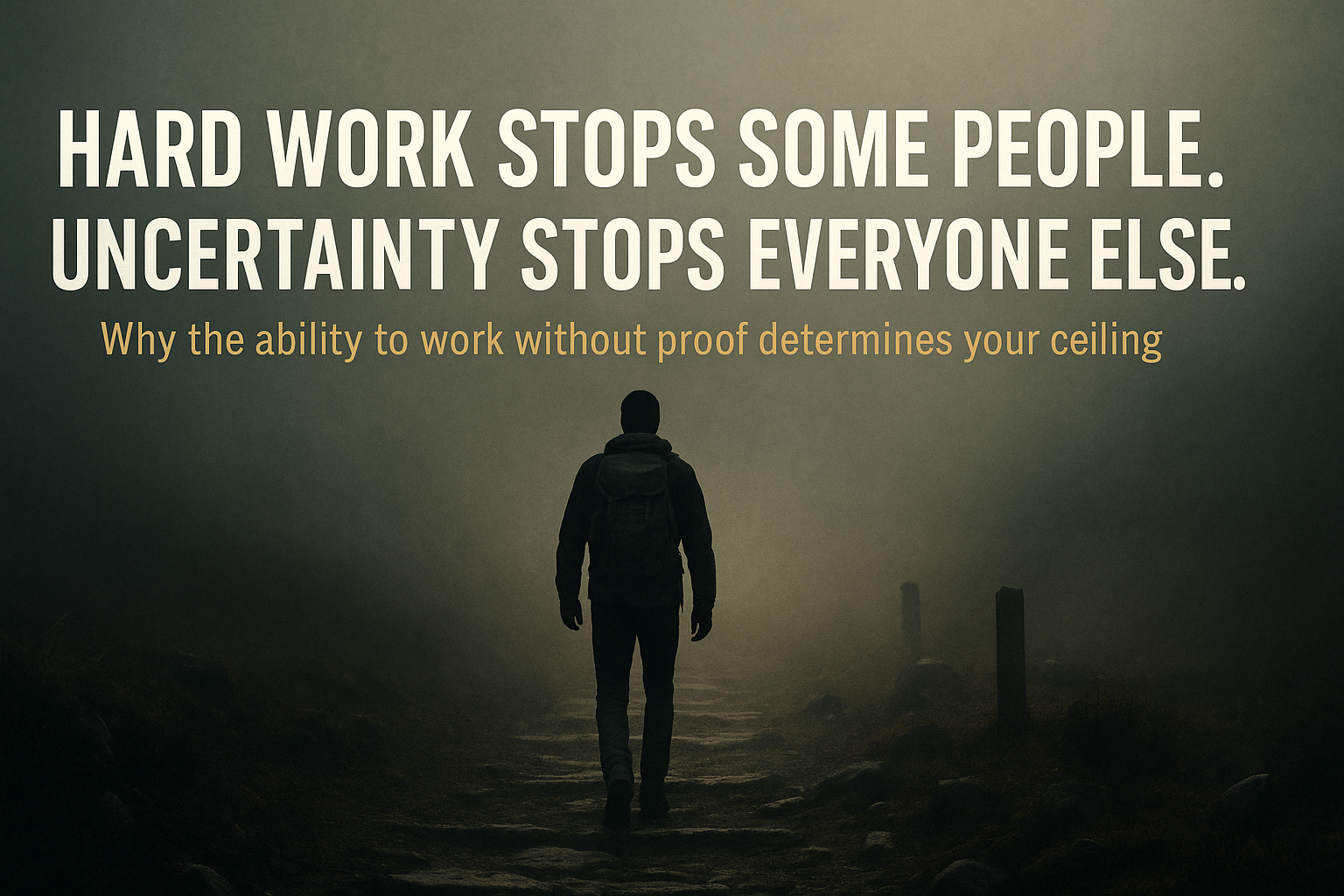
The Greeks understood something we've forgotten, true wisdom reveals itself through simplicity, not complexity. Intelligence is finding the simple truth, not creating elaborate frameworks.
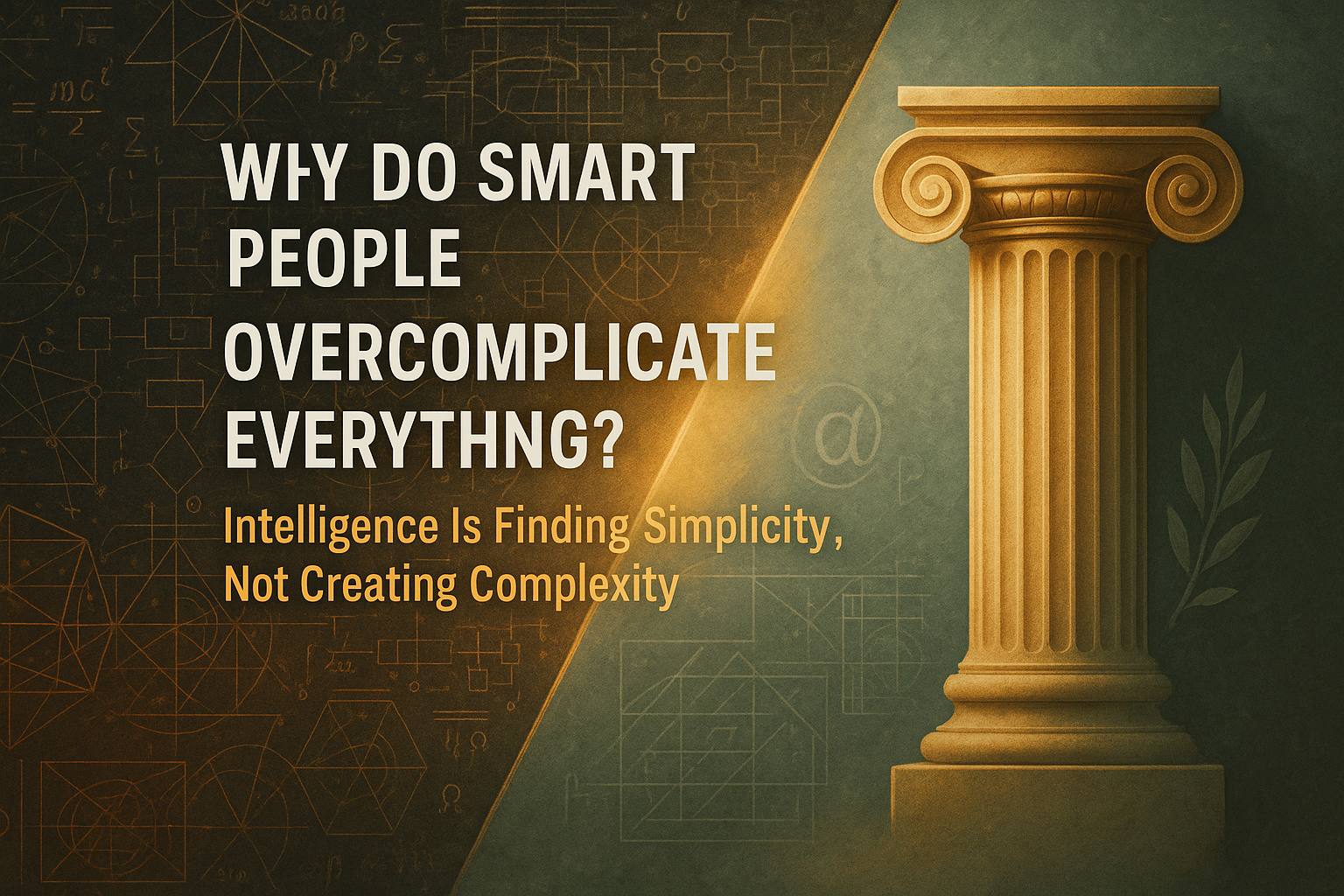
The ancient Greeks understood something we've forgotten—every difficulty is training when you ask the right question. The shift from 'why me?' to 'what's this teaching?' changes everything.

You think success is about the win. It's actually about what the attempt makes you become. The goals you miss build more character than the ones you hit.
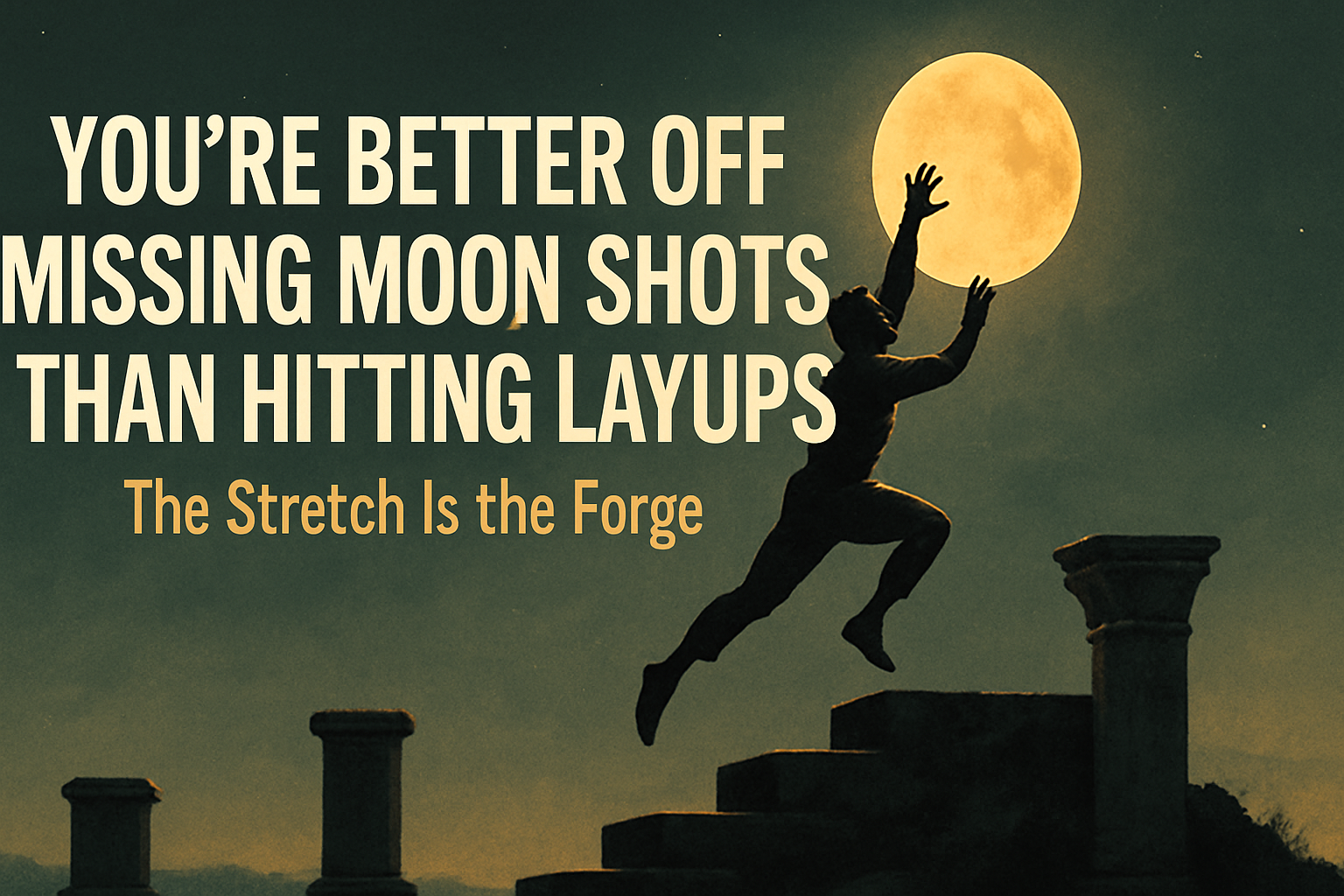
Your problems aren't proof you're failing. They're proof of where you've climbed. Each level of success doesn't reduce difficulty, it upgrades it.
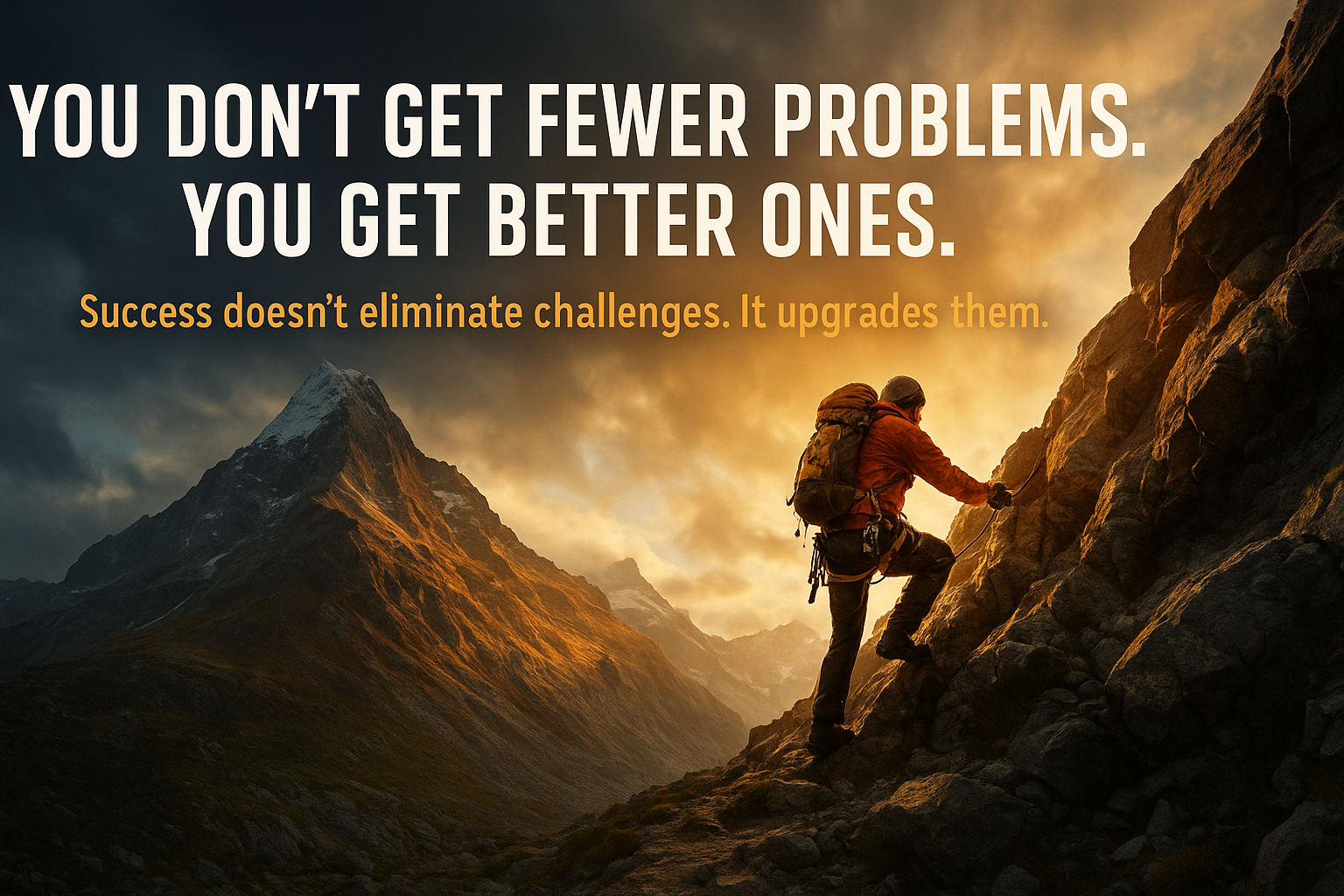
Your fitness, your bank account, your relationships, your opportunities right now aren't revealing your identity. They're showing you what you've been doing for the past 30-90 days. That's not philosophy. That's physics.

Every minute you spend resenting someone is energy you're not using to build your life. The Stoics knew what we forgot: forgiveness releases you from the prison, not them from consequences.
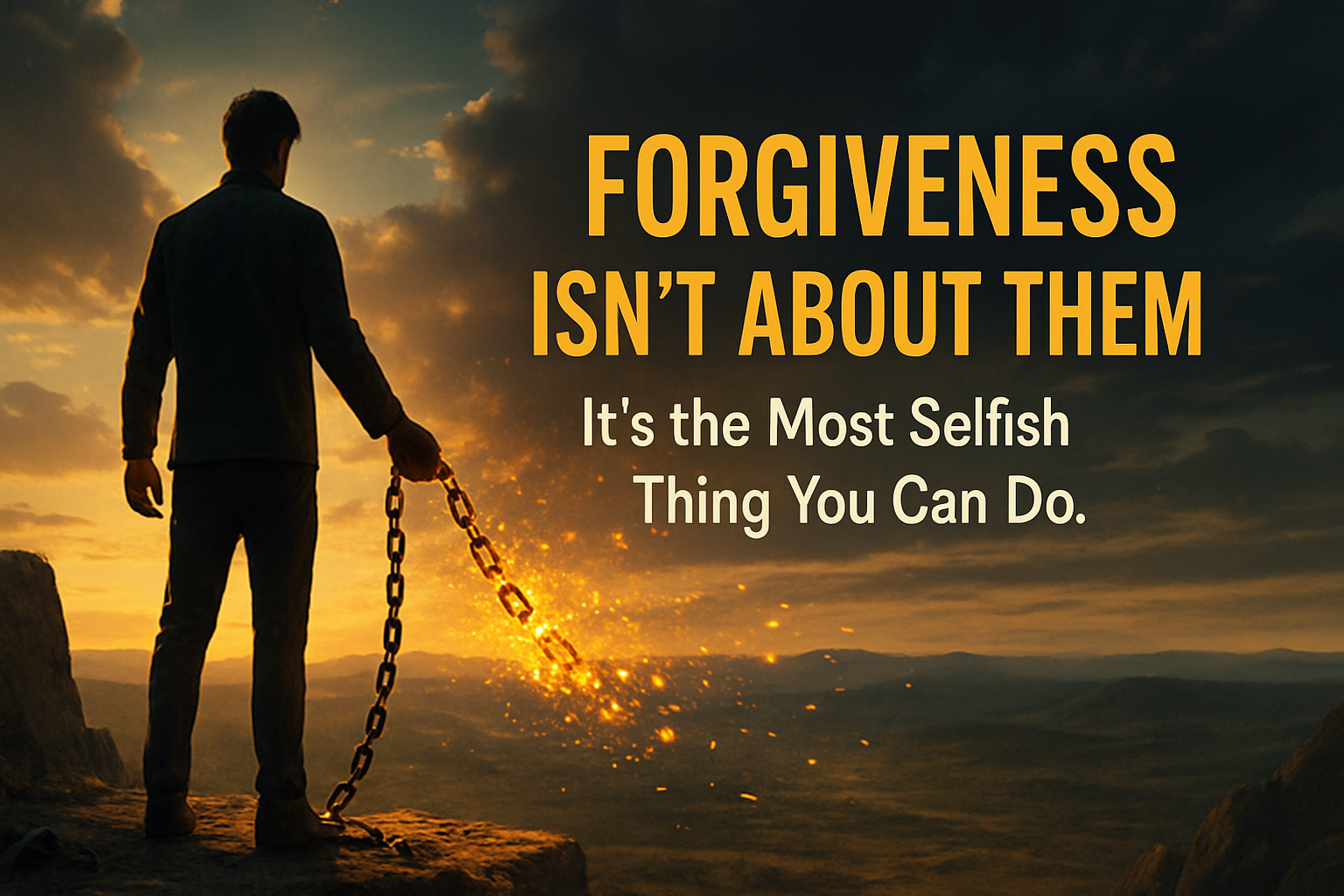
The more directly you pursue happiness, the more it evades you. Kant knew what we forgot: happiness only arrives as a byproduct of living virtuously, not as a target to optimize for.
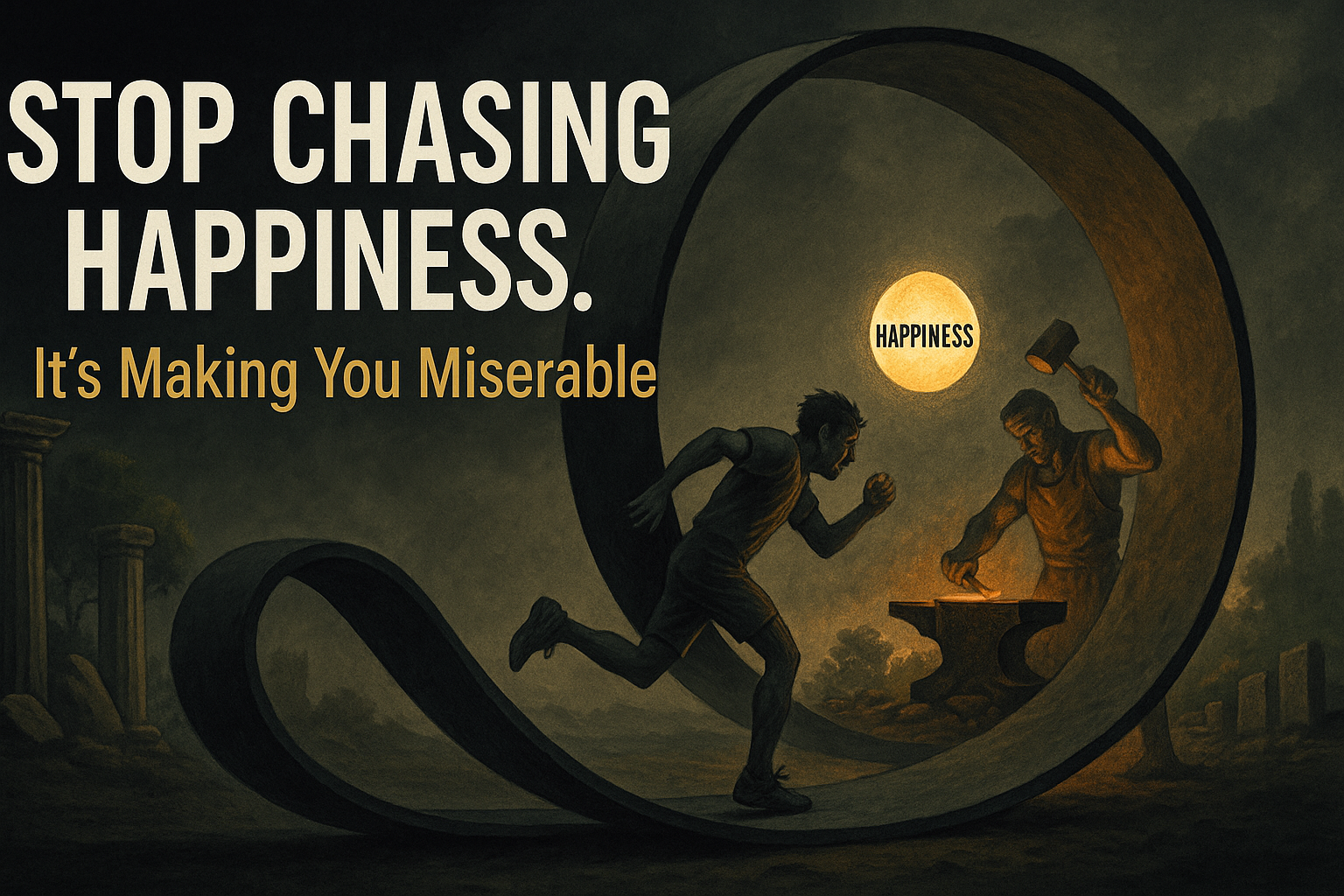
Job security is dead. The people who recover fastest from layoffs aren't the ones with the best titles, they're the ones who built skills that travel. Here's what autarkeia teaches us about real security.
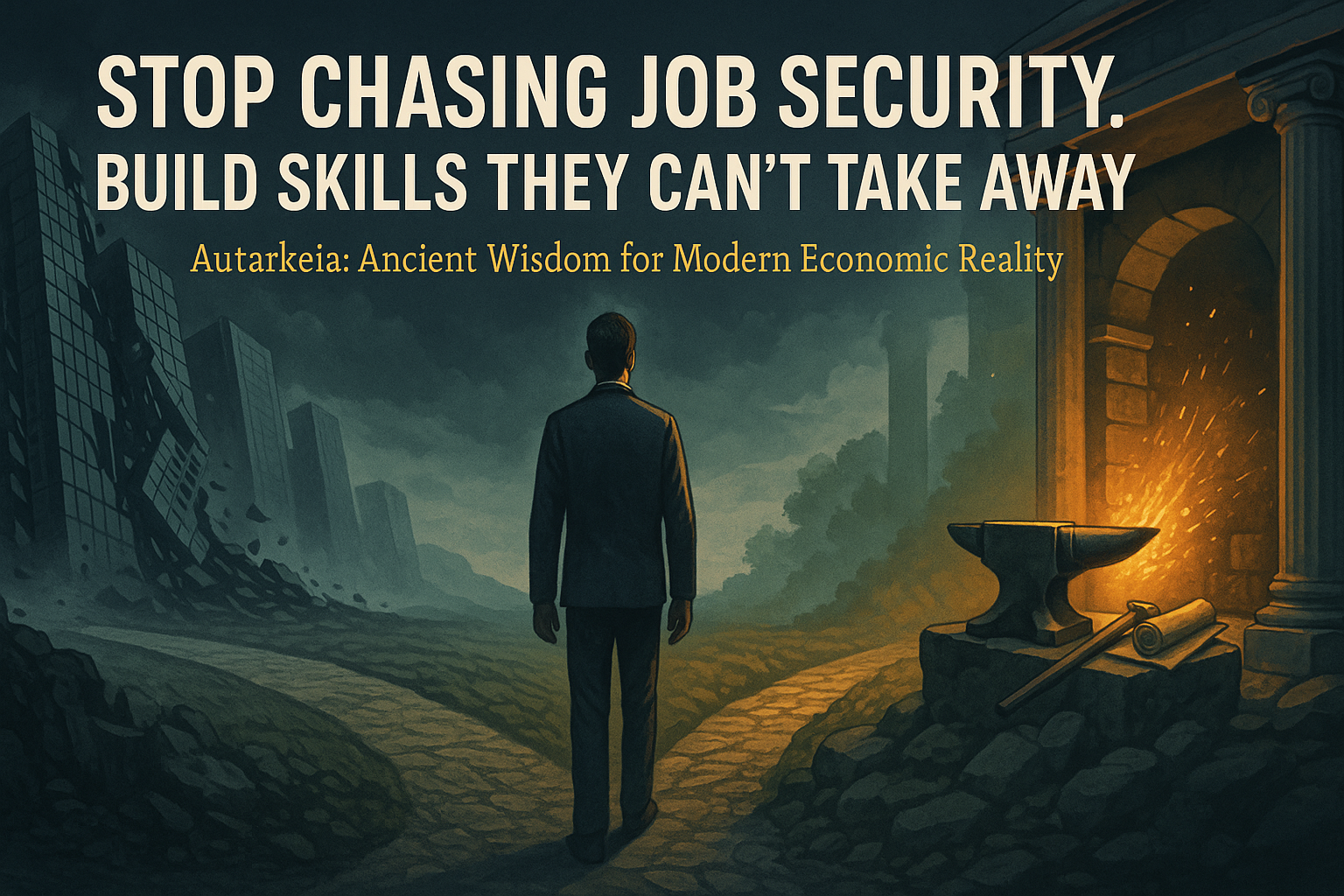
Work-life balance won't save you from being consumed. Everything significant consumes you. The question isn't whether work will consume you, but what you're becoming through that consumption. Choose the fire that forges you.

Epictetus was a slave and chose philosophy. Marcus Aurelius was emperor and chose duty. Excellence is owed regardless of circumstances. Your advantages don't create the obligation. They just eliminate every excuse for avoiding it.
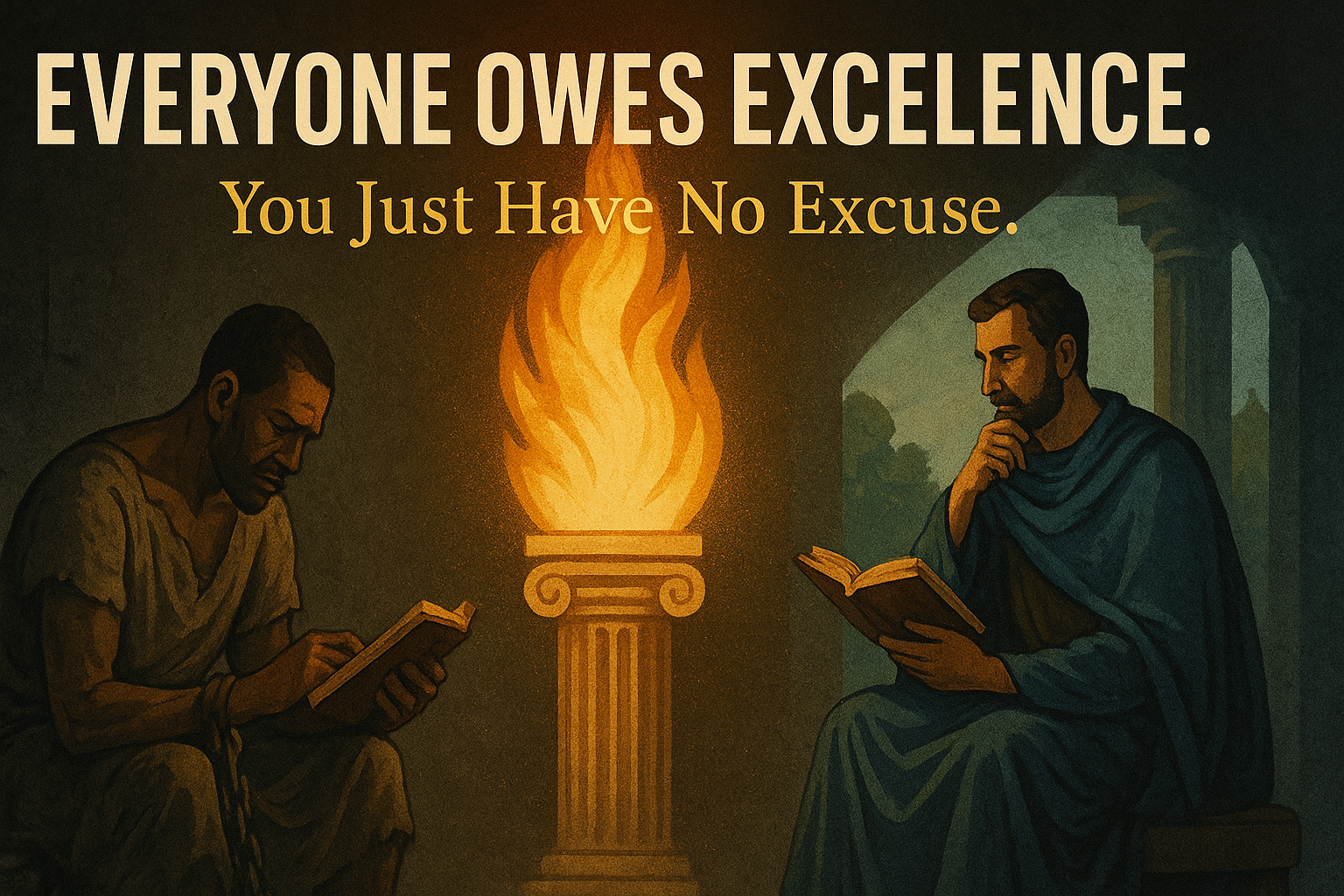
Every moment you spend obsessing over others' achievements is a moment not creating your own. Envy doesn't just feel bad, it actively steals the fuel you need for your own work.
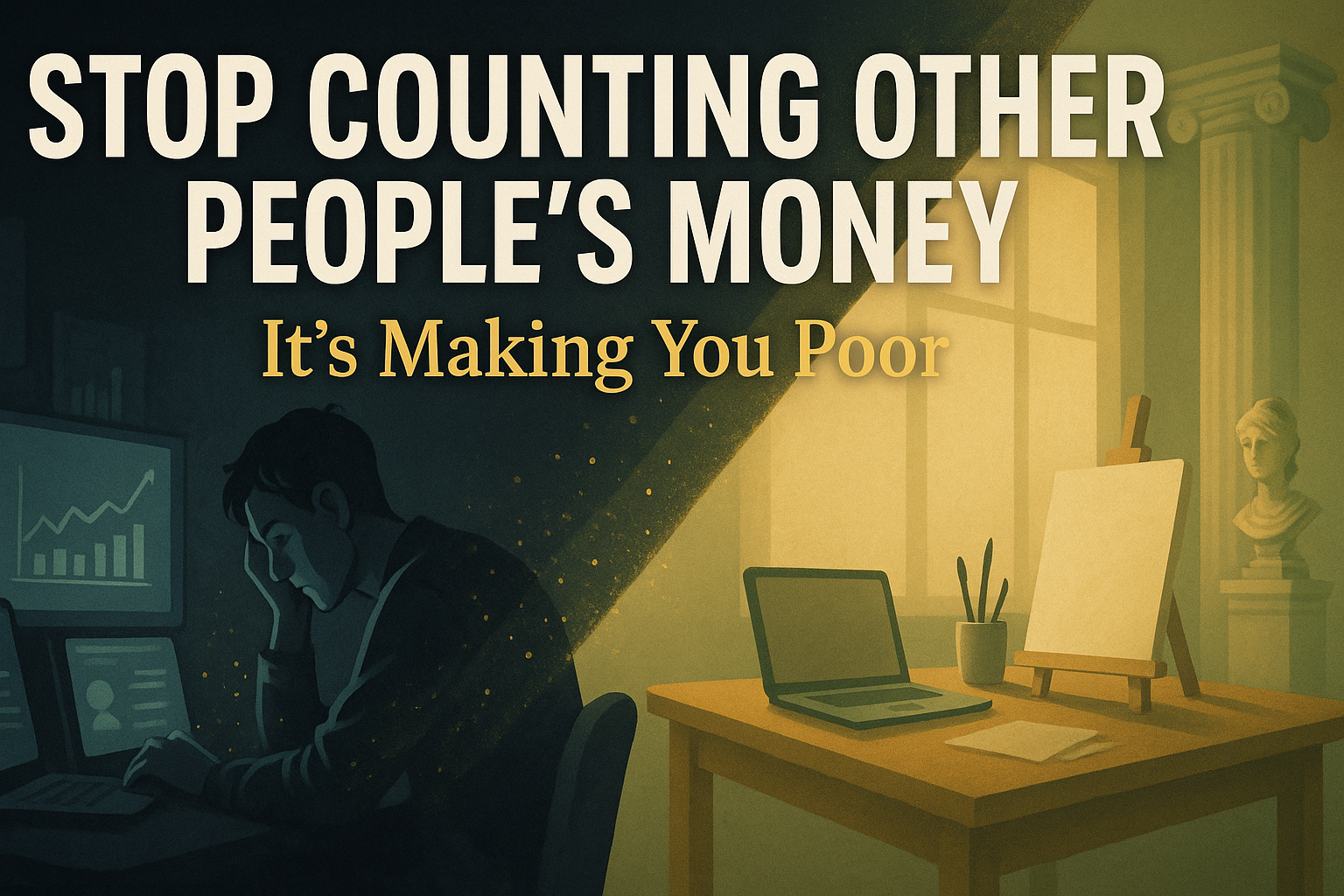
Modern self-care culture produces people who need more support to handle less challenge. Rest is only restorative when preceded by genuine exertion. Without the depletion, there's nothing to restore.
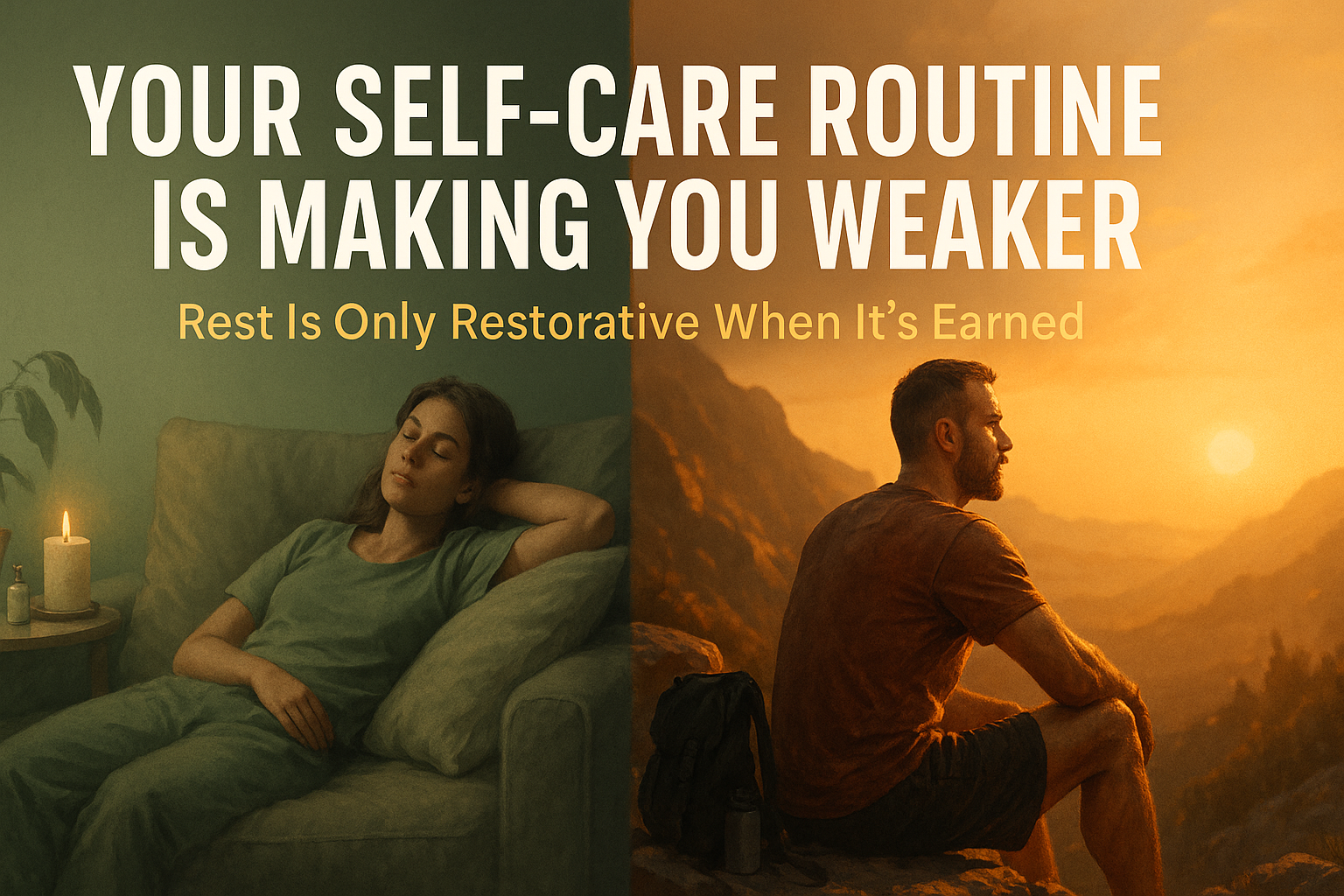
When teams nod along in meetings, we celebrate alignment. But what if everyone's privately disagreeing? The Abilene Paradox shows how silence becomes performative agreement and why andreia (courage) matters more than consensus.
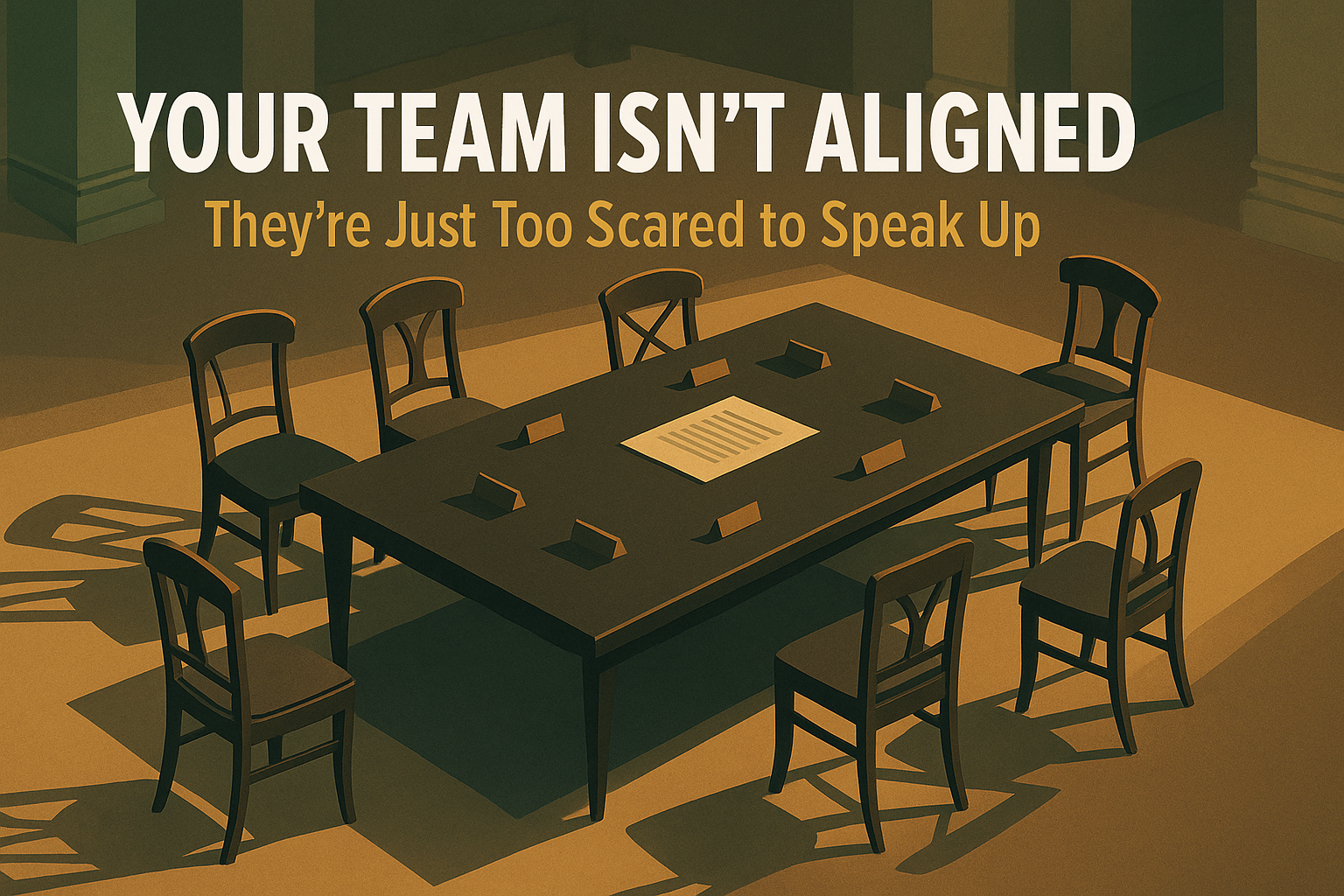
What looks like exceptional talent is usually exceptional attention. The people crushing it aren't more gifted, they've just built the character discipline to ignore everything except what matters most.
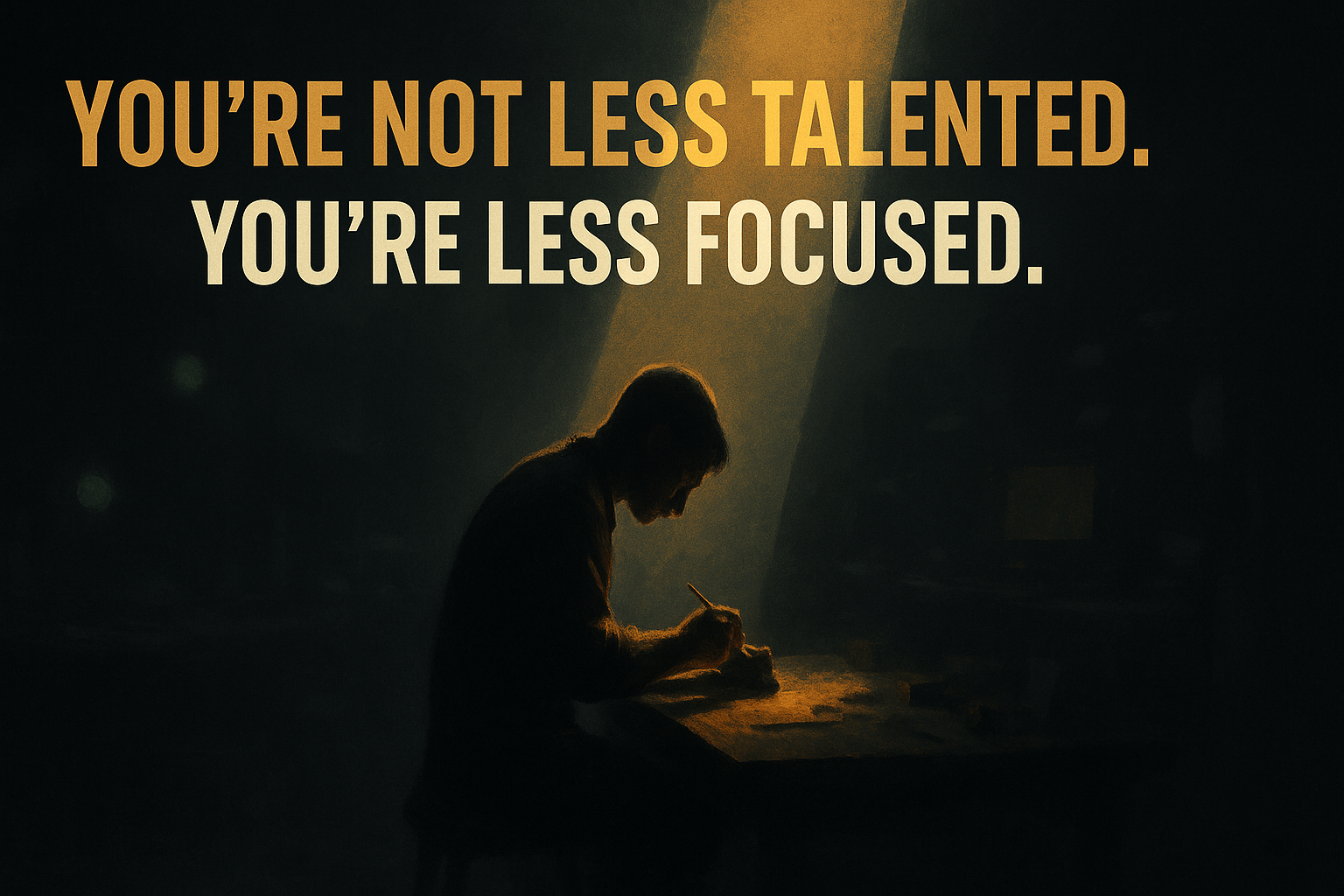
Grandma's cast iron pan lasted 60 years with daily care. My 'lifetime warranty' pan died in 18 months with neglect. Excellence isn't owned—it's rented. And the rent is due every single day.
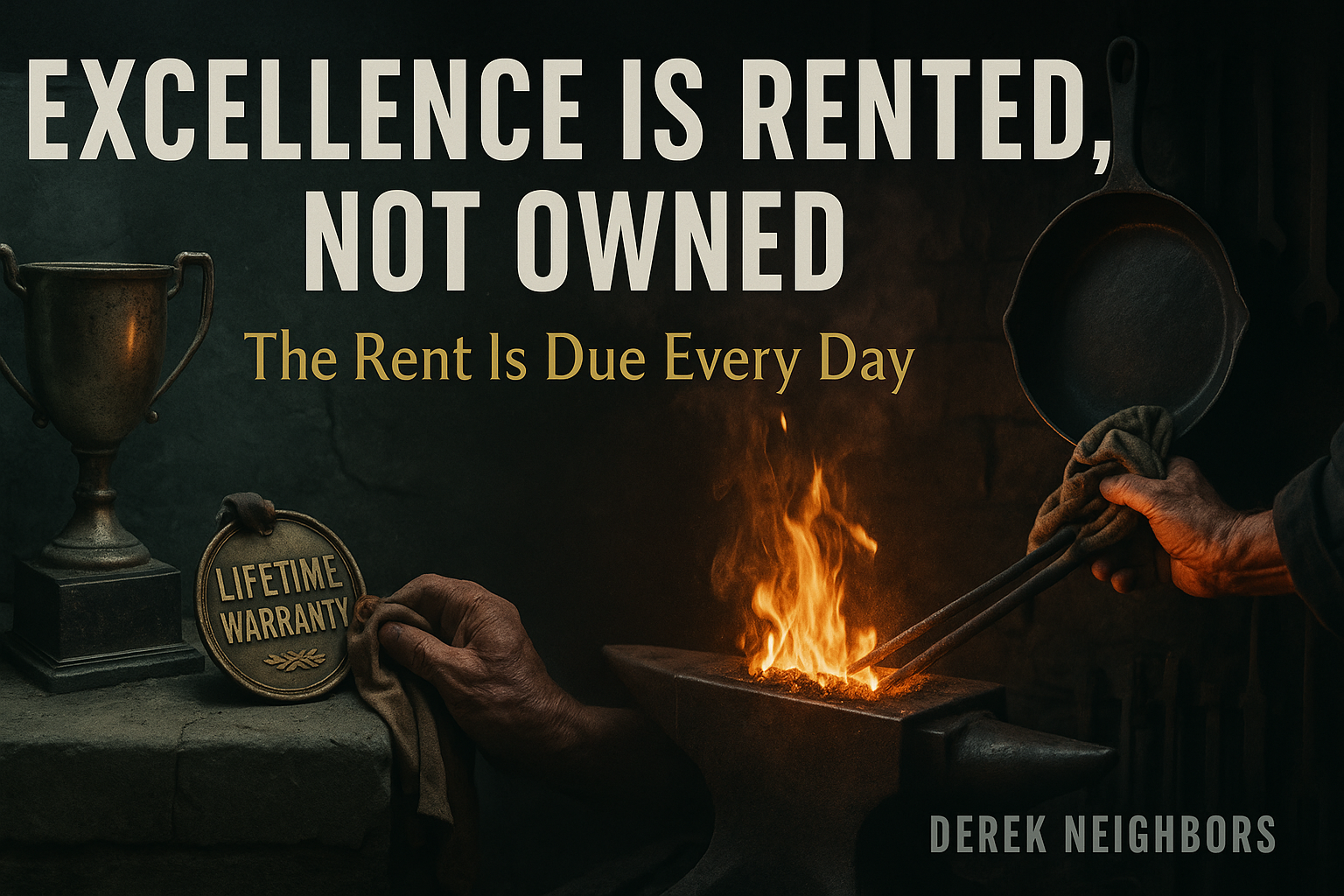
Every feature you add slows every decision. Every process you maintain steals focus. While everyone accumulates complexity, strategic subtraction creates unfair competitive advantage. The lighter you are, the faster you move.
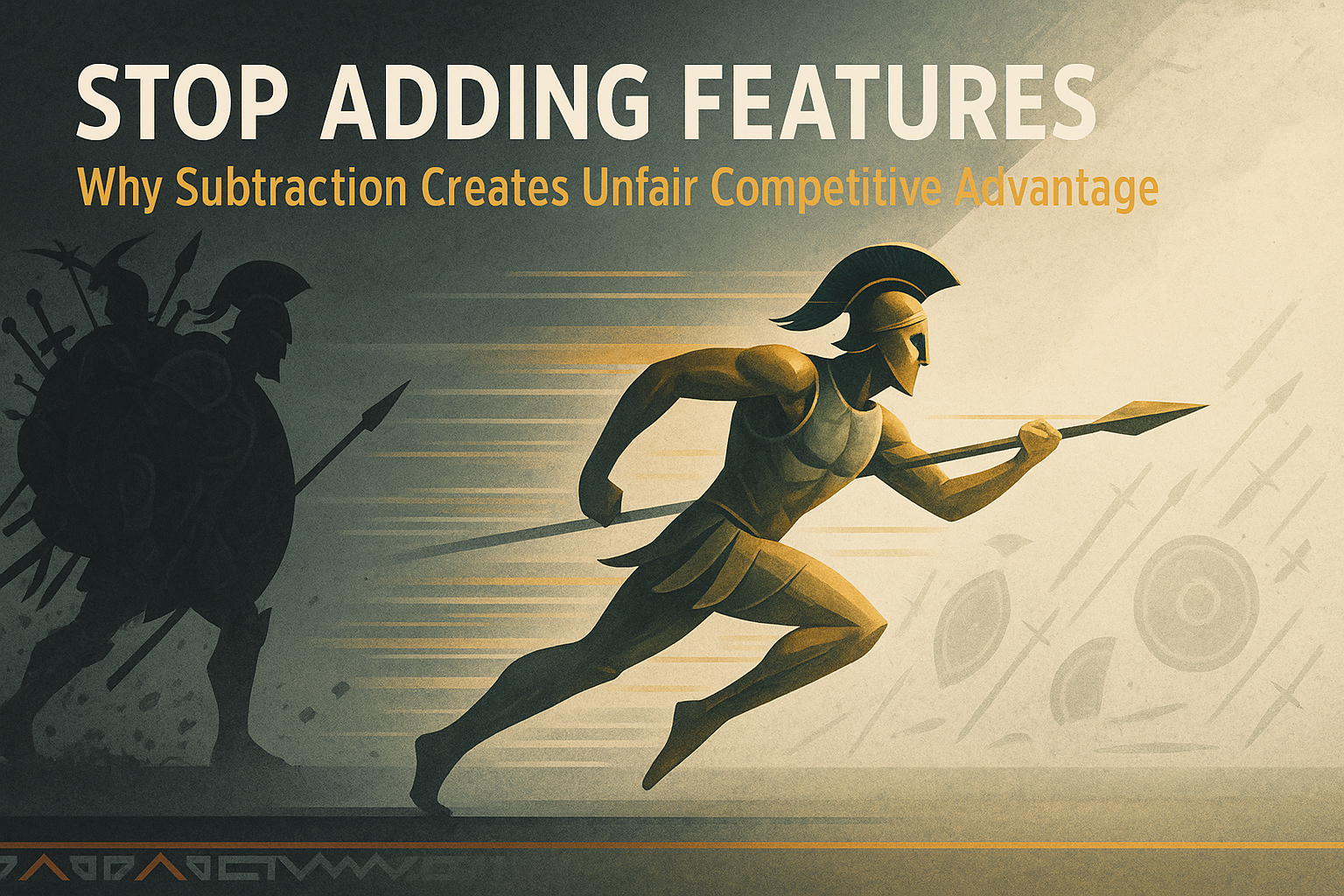
Most leaders chase happiness and end up empty. Ancient wisdom reveals why: they're pursuing the wrong goal. Eudaimonia, human flourishing, transforms everything about how you lead and why it matters.
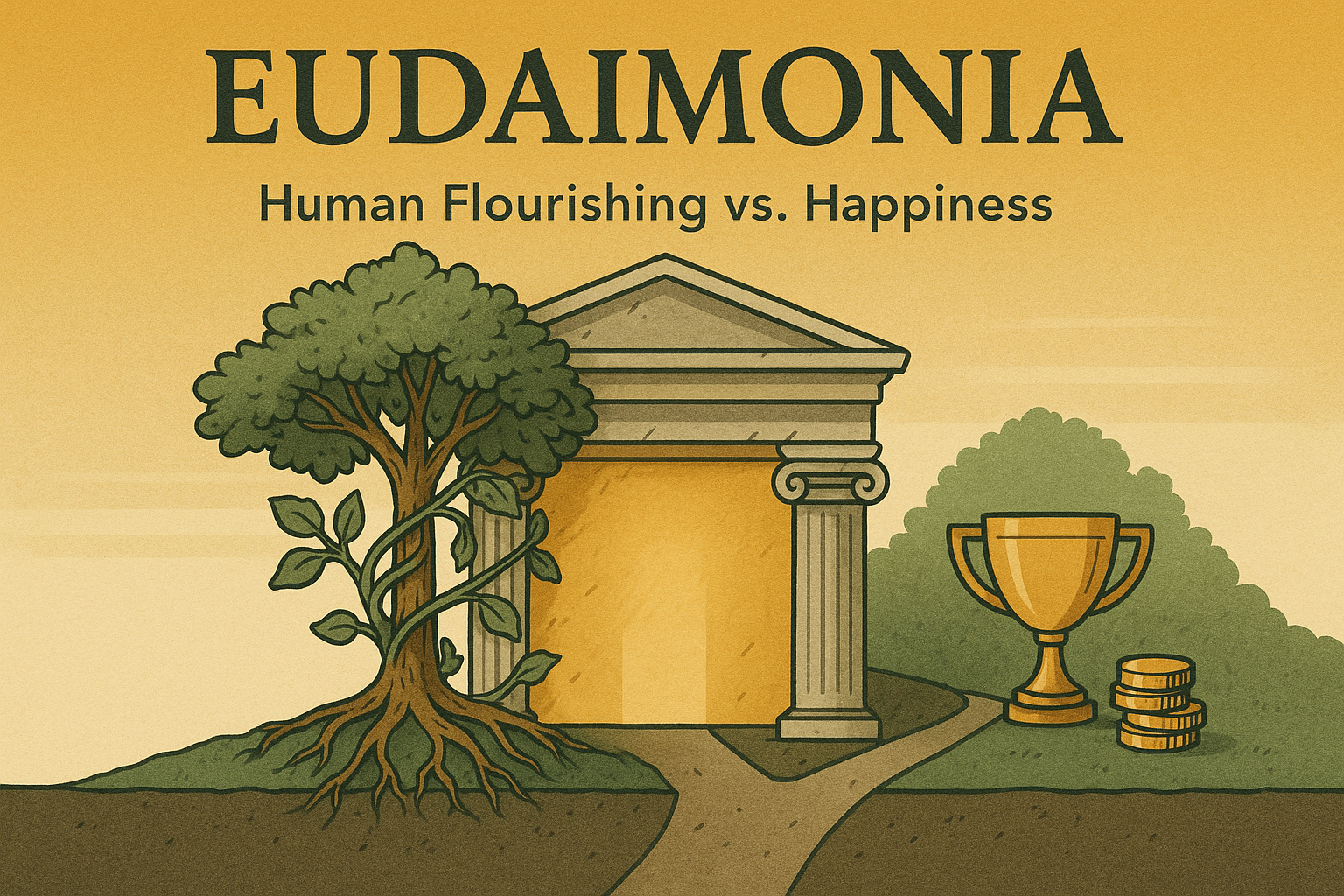
The Greeks understood something we've forgotten: excellence isn't something you achieve, it's something you become. This fundamental shift changes everything about how you approach work, leadership, and life.
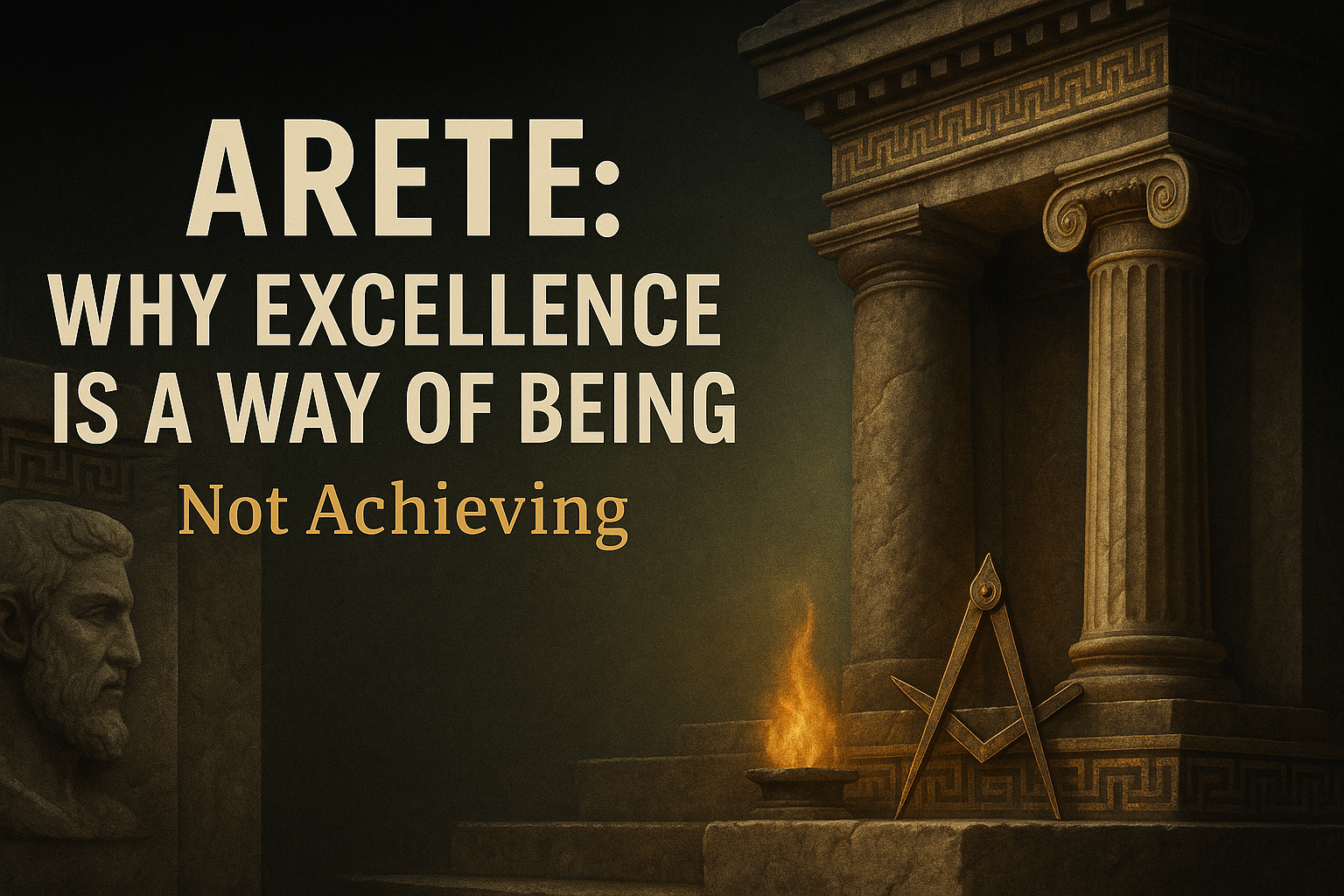
Most of your learning is actually entertainment in disguise. Here's why information without action is intellectual hoarding, and how to transform from consumer to creator through practical implementation.
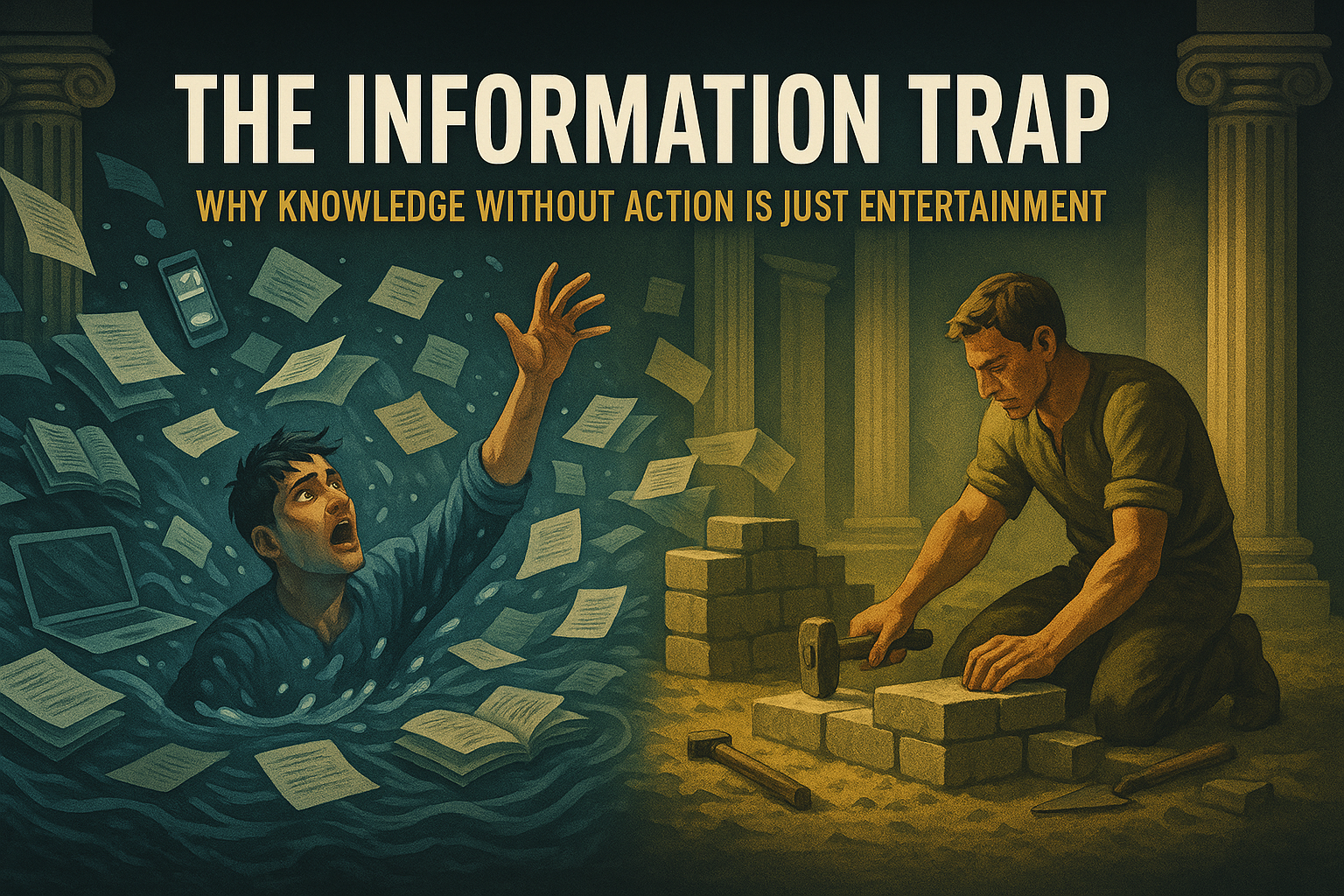
Perfect plans are usually perfectly wrong. Here's why imperfect action creates better results than perfect planning, and how to build the execution advantage through courage and rapid iteration.
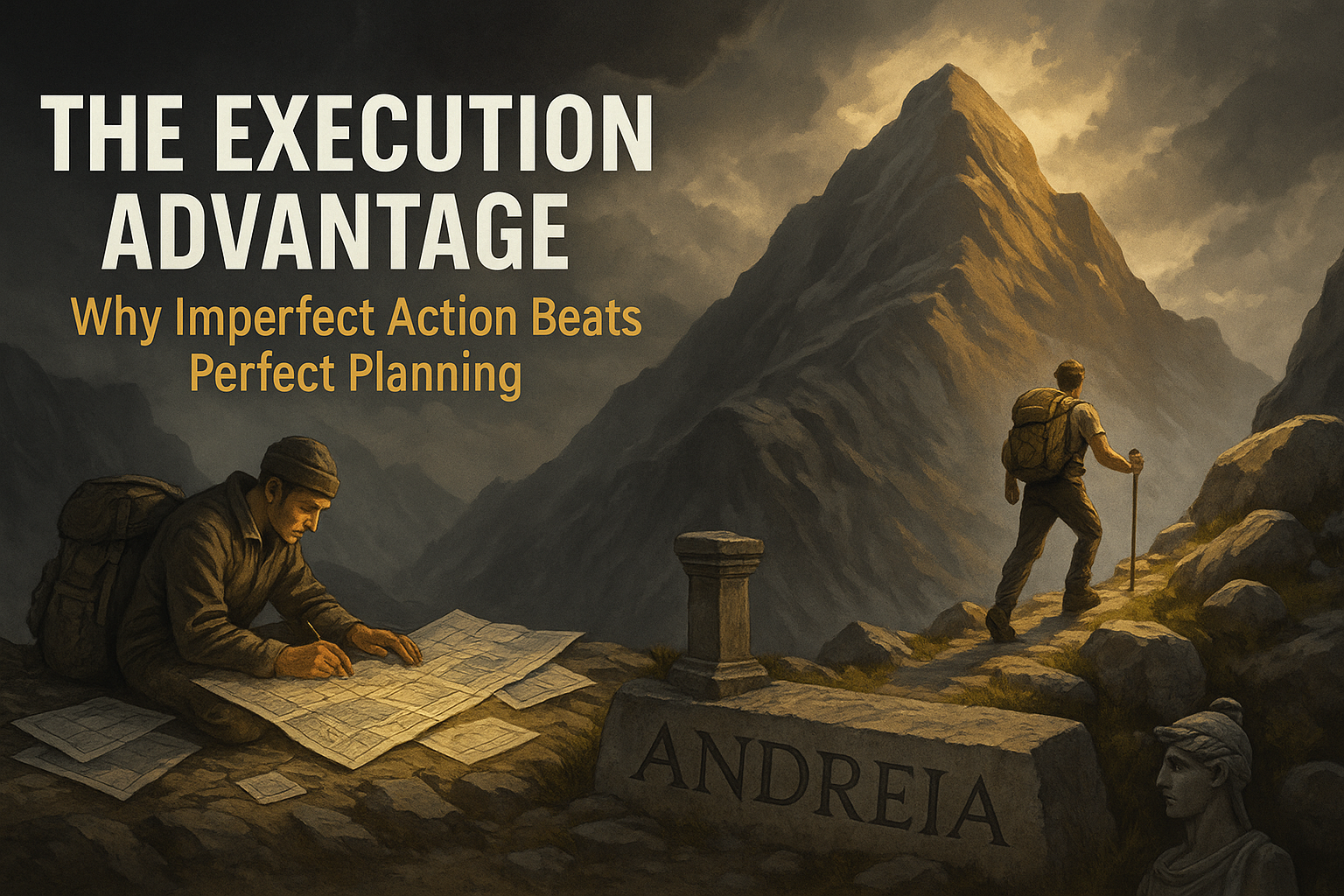
The ancient Greeks had a word for the leadership skill we desperately need today: phronesis. It's not about having all the answers, it's about acting wisely when you don't.
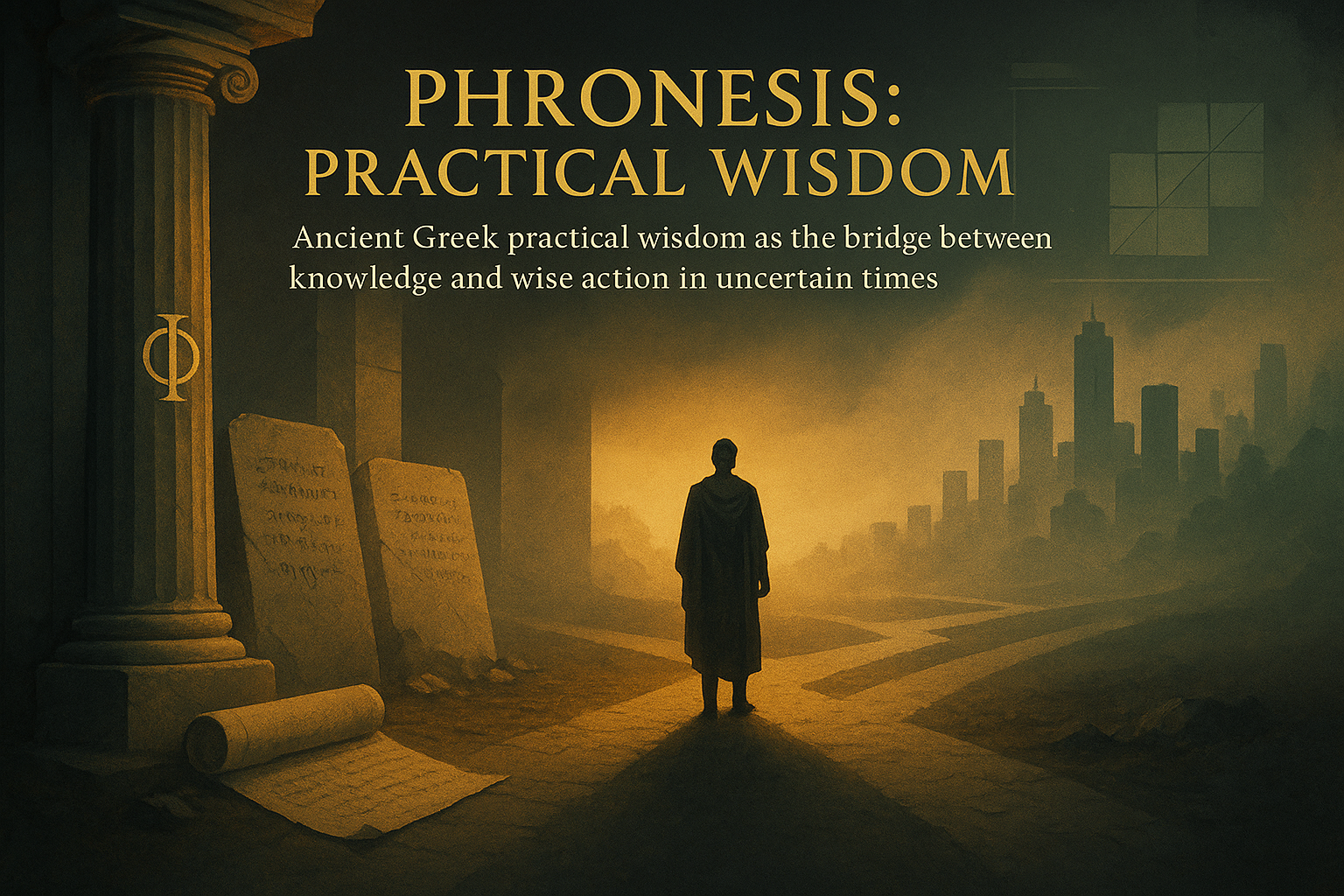
The path to true excellence isn't found in quick fixes or surface, level achievements. It's discovered through the ancient wisdom of arete and eudaimonia, principles that have guided the greatest minds for over 2,000 years.
